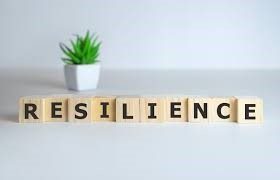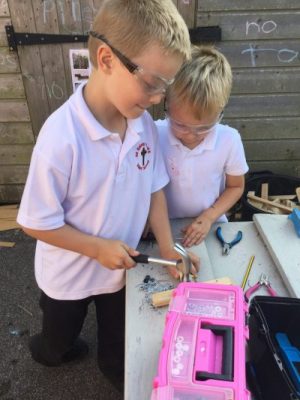Teacher resilience in Covid times
May 10, 2021
How can we support teacher resilience in Covid times? In this blog Esther Fulton considers how the current pandemic has affected the resilience of beginning teachers and suggests how key support can be put in place to help with this. As part of the ITE curriculum here at the University of Nottingham, one of the …
Reconsidering the role of deliberate practice in teacher education
April 19, 2021
The disruption to schooling this year has led to some unusual learning experiences for beginning teachers. While they may have missed some face-to-face time in classrooms, they have nevertheless been able to experience aspects of creative thinking, teamwork, parental liaison and technology use that have not been as prominent in the past. All of this …
Using visual models to solve problems and explore relationships in Mathematics: beyond concrete, pictorial, abstract – Part 1
March 18, 2021
This two-part blog series by Marc North explores some thinking and strategies for using representations in Mathematics lessons. Part 1 unpicks some of the key theoretical ideas around the use of representations and models and foregrounds how representations can be used to both solve problems and explore mathematical relationships. Part 2 will illustrate these theoretical …
Planning for possibilities
February 17, 2021
In this post, Catherine Gripton considers planning and how ‘planning for possibilities’ might support beginning and early career teachers to plan more holistically for learning. Learning to plan One of the first challenges for beginning teachers on an initial teacher education course is learning to plan. Many beginning and early career teachers will be grappling …
Foundation for What? Issues in EYFS continuity and an integrated pedagogy for KS1
January 14, 2021
In this post, Philip Hood and Joanna Redfern reflect on a journey towards continuity between EYFS and KS1 across two linked C of E Infant schools and offer a model for an integrated pedagogical response. The problem of continuity This ‘learning journey’ spans several years. It was first reported on in a journal article (Hood …
Assessment records in the early years: Reducing workload or reducing quality?
November 23, 2020
In this month’s blog, Cath Gripton reflects on the purpose of documenting assessment in the early years and cautions that we risk ‘throwing out the baby with the bathwater’ in reducing certain types of assessment records in the education of young children. Assessment documentation as evidence In a recent podcast, Camilla Gilmore stated that early …
Classroom practice in 2020: adaptation and opportunity?
October 22, 2020
In this post, Rupert Knight reflects on some of the changes to Primary classroom practice emerging this school year. Taking stock at the halfway point of this very unusual term, what are the questions that might arise as the school year proceeds? Not the usual start to a school year… When children and teachers returned …
Storytelling in the classroom: the teacher’s role
September 21, 2020
In this month’s post, Mike Payton builds on our previous blogs on oracy and children’s literature by considering the power of storytelling as a fundamental skill in the primary classroom Teachers (and PGCE tutors) quickly learn that with changes of government, or education secretary, will come changes to the curriculum, from slight tinkering to radical …
Teachers’ changing professional identity
June 22, 2020
In this blog Esther Fulton looks at the processes involved in developing your own teacher identity, particularly in the current times. What does it mean to be a teacher during Covid-19? My own identity as a teacher educator has been dramatically altered during the last few months. My comfort zone has always been when I …
Staying centred: what are a teacher’s core practices?
May 22, 2020
In this post, Rupert Knight considers the idea of core practices for teachers and how they might help us understand the essence of a teacher’s role, particularly at a time of extraordinary change. What do we mean by a ‘core’ for teachers? Closely following the Early Career Framework for teachers and using much of the …










